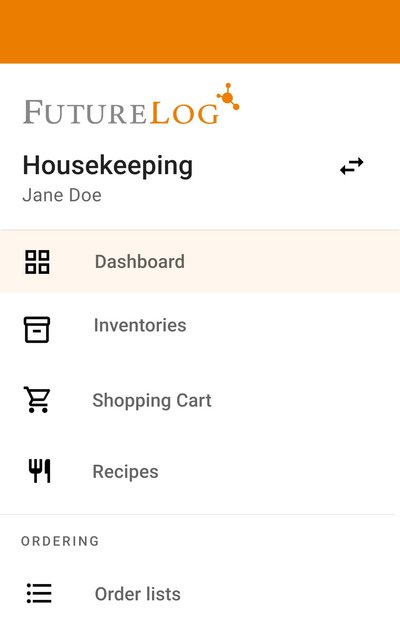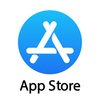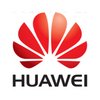
Speak the Language of Procurement: A Glossary for Hospitality Pros
The world of hospitality procurement comes with its own language - full of acronyms, industry-specific terms and technical jargon. Whether you're a seasoned professional or new to the field, our comprehensive glossary will help you navigate procurement with confidence. From acquisition costs and approval workflows to spend analysis and supplier management to, discover the key terms that keep hotel operations running smoothly.
General Procurement Terms
- Absorption Costing – A costing method that includes both fixed and variable costs in the cost of a product.
- Accounts Payable (AP) – Amounts a company owes to suppliers for goods and services received.
- Accounts Payable Automation – The use of digital workflows to process vendor invoices without manual intervention.
- Acquisition Cost – The total cost incurred to acquire an asset and bring it to operational use, including transportation and installation.
- Activity-Based Costing (ABC) – A costing approach that assigns overhead and indirect costs to specific activities.
- After-the-Fact Purchase Order – A PO created after a transaction has occurred.
- Agile Procurement – A flexible procurement approach that responds quickly to changes in supply and demand.
- Agile Sourcing – A flexible, responsive approach to sourcing that allows for quick adjustments to market changes.
- Agile Spend Management – A methodology using automation and analytics to optimise procurement spend.
- Approval Workflow – A sequence of steps for approving purchases, invoices, or contracts.
- Approved Supplier – A vendor that meets predefined criteria for reliability, quality, and compliance.
- Auction in Procurement – A competitive bidding process where suppliers compete for contracts using various auction models.
- Compliance – Adherence to laws, regulations, guidelines, and industry standards.
- Due Diligence – The investigation of a supplier, investment, or contract to verify details before finalising a transaction.
- Economies of Scale – Cost advantages gained when production increases, reducing per-unit costs.
- Hotel Procurement – The process of acquiring goods and services for hotel operations, including furniture, fixtures, equipment, food and beverages, and housekeeping supplies.
- Invoice Matching – The process of verifying an invoice against a purchase order and receipt.
- Lead Time – The time from placing an order to receiving the product.
- MOQ (Minimum Order Quantity) – The smallest quantity a supplier is willing to sell.
- OEM (Original Equipment Manufacturer) – A company that produces parts used in another company’s final product.
- Procurement – The process of obtaining goods and services, from preparation to final delivery.
- Procure-to-Pay (P2P) – The entire process from purchasing to invoice payment.
- Purchase Order (PO) – A document issued to a supplier to request goods or services.
- Request for Information (RFI) – A preliminary request to gather information before issuing an RFQ or RFP.
- Request for Proposal (RFP) – A formal request for suppliers to submit proposals for a product or service.
- Request for Quotation (RFQ) – A process where businesses request price quotes from suppliers.
- Source-to-Pay (S2P) – A broader procurement cycle, including supplier sourcing before purchasing.
- Stock Keeping Unit (SKU) – A unique identifier assigned to each product for inventory tracking.
- Wholesale – The sale of goods in large quantities at a lower price, typically for resale.
Business Intelligence and Reporting
- AQL (Acceptable Quality Limit) – The maximum number of defective goods allowed in a sample inspection.
- Balanced Scorecard – A performance management tool used to track key procurement and business metrics.
- Benchmarking – Comparing business performance metrics against industry best practices.
- Best Alternative to a Negotiated Agreement (BATNA) – The most favorable alternative if negotiations fail.
- Best and Final Offer (BAFO) – A supplier's final proposal submitted in multi-stage negotiations.
- Bill of Lading (BOL) – A transport document issued by a carrier as proof of goods received for shipment.
- Key Performance Indicator (KPI) – A metric used to evaluate procurement efficiency and performance.
Compliance & Sustainability
- Carbon Accounting – Measuring and managing carbon emissions from procurement activities.
- Carbon Offset – Investments in environmental projects to compensate for carbon emissions.
- Corporate Social Responsibility (CSR) – A company’s commitment to ethical and sustainable business practices.
- Environmental, Social, and Governance (ESG) – Criteria used to measure sustainability and ethical impact.
- Fair Trade Certification – A label indicating that a product meets social and environmental standards.
- Food Waste Reduction – Strategies to minimise food waste in hospitality procurement.
- Sustainable Procurement – Integrating environmental and ethical considerations into procurement.
eProcurement & Digital Solutions
- eProcurement – The use of digital platforms to conduct procurement activities.
- Electronic Data Interchange (EDI) – Automated electronic exchange of business documents.
- Enterprise Resource Planning (ERP) – Software that integrates core business processes, including procurement.
- Point of Sale (POS) – A system used in hospitality to manage transactions and sales.
- Procure-to-Pay (P2P) – A digital process encompassing requisition, purchasing, invoicing, and payment.
- PunchOut Catalog – A supplier-hosted online catalog integrated with a buyer’s procurement system.
- Single Sign-On (SSO) – A system that allows users to access multiple applications with one login.
Hospitality-Specific Terms
- BEO (Banquet Event Order) – A detailed document outlining event supply needs.
- FF&E (Furniture, Fixtures, and Equipment) – Durable items used in hospitality settings.
- OS&E (Operating Supplies and Equipment) – Consumable and reusable supplies for hospitality operations.
Inventory & Spend Management
- Backorder – An order for goods that are temporarily out of stock.
- Bottleneck Item – A critical supply item with high procurement risk due to limited availability.
- Cost Center – A department or unit within an organisation that incurs costs but does not generate revenue directly.
- Economic Order Quantity (EOQ) – The optimal order quantity that minimises total inventory costs.
- Inventory Management – The supervision of non-capitalised stock items and inventory.
- Inventory Management System (IMS) – Software for tracking and managing stock levels.
- Inventory Turnover – A measure of how frequently inventory is sold and replaced.
- Just-in-Time (JIT) Purchasing – Ordering inventory as needed to reduce waste and storage costs.
- Landed Cost – The total cost of a product, including shipping, duties, and handling fees.
- Par Level – The minimum stock level required to meet demand.
- Safety Stock – Extra inventory kept to prevent stockouts.
- Spend Analysis – Reviewing purchasing data to identify cost-saving opportunities.
- Total Cost of Ownership (TCO) – The overall cost of a product, including purchase price, maintenance, and disposal.
Supplier & Vendor Management
- Barter – Exchange of goods or services without monetary payment.
- Best-of-Breed – Selecting specialised procurement software solutions instead of a full-suite system.
- Contract Lifecycle Management (CLM) – The process of managing contracts from creation to renewal.
- Preferred Supplier – A vendor that has been approved for frequent use due to quality, pricing, or contracts.
- Supplier Relationship Management (SRM) – Managing supplier interactions to maximise value and minimise risks.
- Vendor Management – The process of developing, managing, and controlling vendor relationships.
- Vendor Management System (VMS) – A tool to track and manage supplier performance.
- Vendor-Managed Inventory (VMI) – A system where suppliers manage inventory levels on behalf of buyers.
- Vendor Performance Scorecard – A tool for tracking supplier performance metrics.
OUR APP: Procure-to-pay while on the go!
From placing orders and managing recipes to approving invoices and viewing reports, with FutureLog’s native mobile app you’ll have all the power and automation of our P2P web solutions conveniently at your fingertips. Whether you’re online or offline, you can stay in control.



